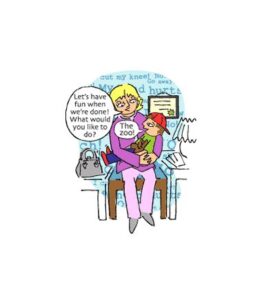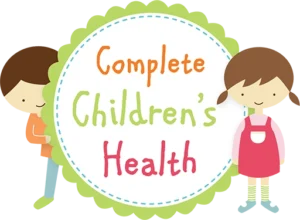In this Blog, we explain how the first visit often works. This is a guide and may help you and your child feel more comfortable. 
When a family comes to see us they have been referred by their GP, but often it is not the GP who has directed the family in the first instance. We need to establish who has concerns – is it the family? the kinder? school teacher? maternal and child health nurse? And establish what the specific concerns are.
It is not uncommon to see a child referred for bed wetting or asthma who evolves to become a child requiring a more detailed neurodevelopmental assessment. Sometimes, it takes time for the real reason the family is there to become apparent, and it may take several sessions of sorting out other medical issues to get onto bigger concerns.
We spend a significant amount of time in the first appointment engaging the child, always asking about their interests and strengths first before moving on to the challenges. We try not to underestimate how difficult it must be for these children facing challenges at school to come in and hear their parents talking about all their deficiencies and shortcomings. It helps to always start with a conversation about what they enjoy and are good at, and also ask parents this question. The difficult discussion is planned ahead by explaining that we all have strengths and challenges and go on to describe my challenges with navigational skills and sporting prowess.
Children are understandably apprehensive out their first visit, so we recommend that prior to attending you should:
- Prepare your child before the visit
- Educating children in advance is the most effective way to alleviate fears.
- Parents may prompt these conversations with age-appropriate books, a kids’ TV show about visiting the doctor or even a toy doctor’s kit for a pretend run-through.
- Call our office in advance to know what to expect.
- Offer distractions
- Be comforting. Holding or hugging a child is preferred over having them restrained, which can only elevate a patient’s fears.
- Offer a small treat afterwards – the promise of an ice cream cone, small toy, or a fun shared outing after the doctor’s office may help boost positive associations with the experience.
As Paediatricians we have all chosen our profession because we care deeply for the welfare and wellbeing of children. Every single day we are grateful for the opportunity to work with vulnerable children, those affected by physical or mental health conditions and are constantly amazed by the resilience of the young people and families who present before us.
If you have concerns about your child, visit your GP for a referral first and we look forward to helping you.
